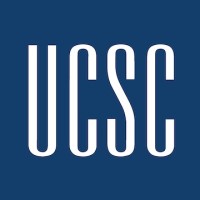Bachelor of Science in Mathematics (Bachelors)
UC Santa Cruz
Santa Cruz, CA
The Mathematics Bachelor of Science degree (B.S.) is designed for students who value the theoretical study of mathematics-- not only for application, but also for its own sake. Theoretical mathematicians focus on the big how and why questions of mathematics, and attempt to find new formulae and methods while utilizing insights from a tradition of thousands of years. The Mathematics B.S. is recommended for those students who seek an education that involves not only foundational computational skills but also rigorous explanations of how mathematics works. A well-rounded education in mathematics requires an introduction to proof class, and a balance of advanced coursework in algebra, analysis, and geometry. Majors who seek graduate study at top institutions often go beyond the required courses to enroll in graduate courses as well.
Kết quả học tập của chương trình
Learning outcomes summarize the most important knowledge, skills, abilities and attitudes that students are expected to develop over the course of their studies. The program learning outcomes clearly communicate the faculty’s expectations to students, provide a framework for faculty evaluation of the curriculum based on empirical data, and help improve and measure the impact of implemented changes.
Mathematics Undergraduate Student Learning Objectives
The mathematics program promotes mathematical skills and knowledge for their intrinsic beauty, effectiveness in developing proficiency in analytical reasoning, and utility in modeling and solving real-world problems. To responsibly live within and participate in the transformation of a rapidly changing, complex, and interdependent society, toward a sustainable and socially just society, students must develop and unceasingly exercise their analytical abilities. Students who have learned to logically question assertions, recognize patterns, and can distinguish the essential from the irrelevant aspects of problems can think deeply and precisely. Students equipped with these skills will be in a position to help solve the “big” problems of our time such as climate change.
Students majoring in mathematics attain proficiency in:
✔ Critical thinking. The ability to identify, reflect upon, evaluate, integrate, and apply different types of information and knowledge to form independent judgments including analytical and logical thinking and the habit of drawing conclusions based on quantitative information.
✔ Problem solving. The ability to assess and interpret complex situations, choose among several potentially appropriate mathematical methods of solution, persist in the face of difficulty, and present full and cogent solutions that include appropriate justification for their reasoning.
✔ Effective communication. The ability to communicate and interact effectively with different audiences, collaborate intellectually and creatively in diverse contexts, and appreciate ambiguity and nuance, while emphasizing the importance of clarity and precision in communication and reasoning.
Students acquire and enhance these abilities in mathematical contexts, but the acquired habits of rigorous thought and creative problem solving are invaluable in all aspects of life. These skills are acquired through experience in the context of studying specific mathematical topics and exploring problems chosen to challenge students’ abilities, spurring them on to acquire new techniques and to abandon familiar but restrictive habits of thought. The overarching objectives can be realized in terms of more focused, appraisable objectives specific to mathematics described on the Mathematics Department website.
Curriculum Matrix
All of the key objectives are addressed to some extent in all courses. For example, the ability to formulate precise mathematical statements and to reason logically are essential skills that are progressively developed throughout the curriculum. However, some skills are more heavily emphasized and utilized in some courses than in others. Some courses are specifically intended to help students move to a new level of proficiency with a particular portfolio of skills, while others are accessible only to students who have already reached a given level; the latter courses make heavy use of particular skills, and thus enhance and reinforce the student’s mastery of them, but the skills themselves are not the primary focus of such courses. Some connections between the key objectives, main subject-specific areas, and courses are indicated in the tables of lower- and upper-division mathematics courses at the Mathematics Department’s website.
















